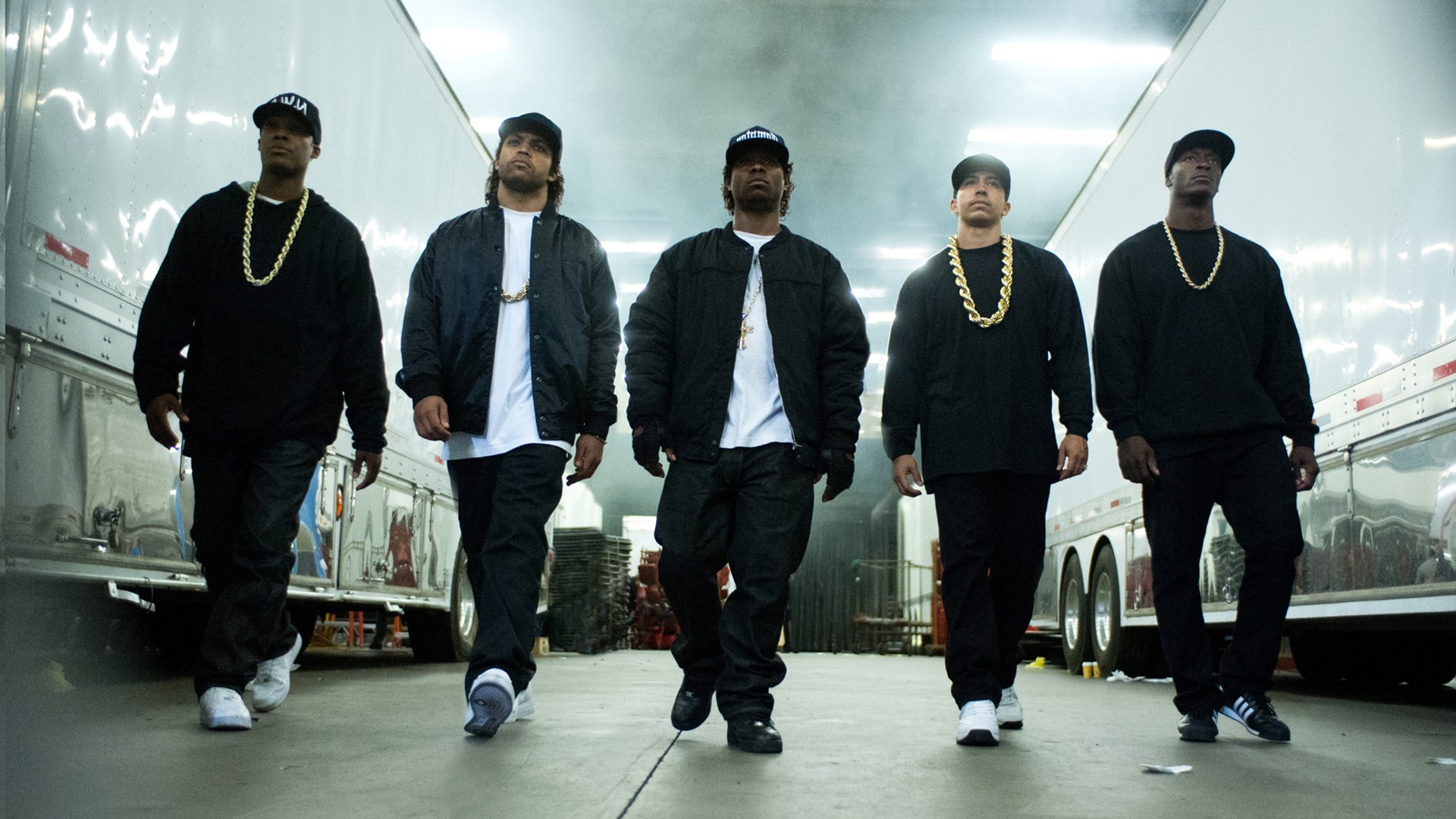Straight Outta Compton has been an enormous success for Universal, and with good reason. In addition to being a very entertaining movie and, in its best moments, a breath of fresh air in the “musical bio-pic” genre, it’s a film that came into being at the perfect time. During a year in which systemic racism and police violence against black Americans have been more public and undeniable than ever, Straight Outta Compton is a literal and figurative middle finger to the white establishment, a highly satisfying statement of rebellion in motion-picture form.
This article won’t be a review of the film (for what it’s worth, I thoroughly enjoyed it, but felt like it lost the plot somewhat in its last half hour). Instead, I’d like to examine the film’s representation of race and gender, as it’s a fascinating counterpart to the modern, whitewashed blockbusters.
I’ll admit that, as a white male, it’s sometimes easy to overlook the ridiculously unbalanced representation of different races in cinema. Even in films set in Los Angeles, or other highly diverse areas, the “stars” are almost always the white people. In a lot of popcorn films and TV shows minorities are thrown into small parts to give the illusion of “diversity” via tokenism, but little effort goes into developing these characters. It’s not necessarily bad that a PARTICULAR film is full of white people, but when almost ALL American films are, it shows a racial and cultural prejudice that exists in the studio system, and not necessarily in the world itself.
What’s brilliant about the representation of races in Straight Outta Compton is that it not only subverts the system by focusing almost entirely on black characters, but that it also steers clear of the tokenism that other films are often guilty of. It’s extremely notable that Paul Giamatti, who plays NWA manager Jerry Heller, is the first white person who appears in the film who is NOT a cop. There are no random white extras hanging out in the background of scenes to make Compton seem more “diverse.” The film specifically wants to point out that Compton is a black city being discriminated against by a (predominately) white police force.
The next time you see a white person in Straight Outta Compton is when NWA has become a success, playing an arena show. Here, there are all sorts of white people hanging out at the front of the crowd, reaching onto stage. This, again, is extraordinarily intentional. The film is making a point in the margins: white people represent the establishment. The main characters of the film have existed in what might as well be a different world entirely. The cops keep them down, the managers can potentially break them out into the world, and it is the appreciation and acceptance from the white establishment that NWA ultimately requires for the enormous success that they obtain.
The success of NWA, as framed by the film, is simultaneously empowering and a reminder of Compton’s place in the world. It proves that IT IS possible to break out of their environment and change the world, but the gatekeepers to such success are still part of the same system that kept them down in the first place. A similar thing could be said about the Straight Outta Compton movie. It is a gargantuan crossover success, having grossed $171 million worldwide at the time of this article’s publication, but could only do so by appealing to people well outside of the environment NWA came up in. Then again, as they say in the movie, they paid for the product. Who cares what they do with it?
Finally, it wouldn’t be fair to talk about the intelligent and intentional usage of white people in Straight Outta Compton without also discussing its usage of women. Compton is one of the worst recent offenders here, utilizing women almost entirely as titillating set design. Even when female characters are important to the central characters’ lives, they tend to enter and exit the story with little to no fanfare at all, uttering a line or two of exposition or complaining about raising kids by themselves. Some of this could be shrugged off as representative of the characters’ feelings towards women and an accurate version of their lifestyles. But given what the movie DOES leave out, especially in regards to Dre’s public and repeated violence against women, it begins to feel a bit insidious.
It’s an unfortunate element of an otherwise fascinating movie. If financial success is necessary to convince Hollywood to try new things, then hopefully Straight Outta Compton will expand the perspectives of popular cinema for years to come.

This article is so captivating and interesting, how would you compare the representation of race in this film, to more dated/modern films?
Thankyou so much for this article. Very informative and interesting 🙂